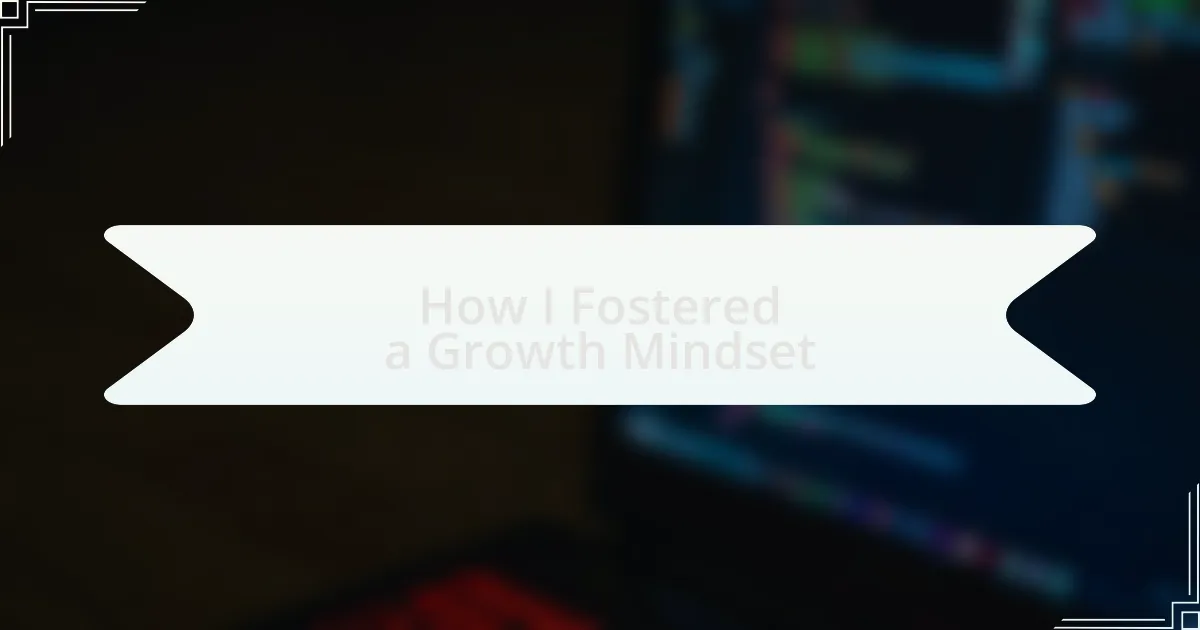Key takeaways:
- Belief in a growth mindset promotes development through dedication and hard work, transforming challenges into growth opportunities.
- Embracing failure and seeking feedback are essential for learning and improving skills.
- Collaboration and adaptability in facing project challenges can lead to innovative solutions and unexpected successes.
- Maintaining a balanced approach through self-care enhances problem-solving effectiveness in high-pressure situations.
Author: Oliver Bennett
Bio: Oliver Bennett is an acclaimed author known for his gripping thrillers and thought-provoking literary fiction. With a background in journalism, he weaves intricate plots that delve into the complexities of human nature and societal issues. His work has been featured in numerous literary publications, earning him a loyal readership and multiple awards. Oliver resides in Portland, Oregon, where he draws inspiration from the vibrant local culture and stunning landscapes. In addition to writing, he enjoys hiking, cooking, and exploring the art scene.
Key principles of growth mindset
One of the fundamental principles of a growth mindset is the belief that abilities can be developed through dedication and hard work. I remember when I first struggled with debugging code; it felt overwhelming. But I realized that every bug I fixed was a step toward mastery, highlighting how perseverance transforms challenges into opportunities for growth.
Embracing failure as a learning tool is another key aspect. I often ask myself, “What can I learn from this mistake?” This mindset change isn’t just about accepting failures; it’s about actively seeking feedback and reflecting on how that feedback can improve my skills. Every misstep has become a valuable lesson, guiding my journey in software development.
Lastly, surrounding myself with a supportive community has reinforced my growth mindset. I fondly remember engaging with peers during coding bootcamps, where we shared our struggles and breakthroughs. This camaraderie not only fostered mutual learning but also inspired me to keep pushing my boundaries. Who wouldn’t want to be part of such an uplifting environment?
Overcoming challenges in software projects
Tackling challenges in software projects often requires a shift in perspective. I vividly recall a time when our team faced a significant deadline, and a critical feature malfunctioned days before launch. Rather than succumbing to stress, we regrouped, focused on the problem, and found creative solutions. That experience taught me that collaboration and open communication can turn potential disasters into moments of innovation.
I’ve also found that embracing uncertainty is crucial when overcoming roadblocks in software development. There was a project where we constantly encountered shifting requirements, which often left me feeling frustrated. However, I learned the power of adaptability—when we adjusted our plans and embraced iterative development, we not only delivered on time but also created a product that exceeded our original vision. Isn’t it fascinating how flexibility can lead to unexpected successes?
Additionally, prioritizing self-care plays an unexpected role in overcoming challenges. During periods of intense pressure, I noticed that I became less effective and more prone to mistakes. By taking regular breaks and practicing mindfulness, I returned to my work with a clearer perspective. Don’t you think that maintaining a balanced approach can lead to better problem-solving in software projects? It’s a lesson I now carry with me in every challenge I face.
Personal experiences with growth mindset
I distinctly remember a time early in my career when I grappled with a complex algorithm that seemed insurmountable. Instead of getting discouraged, I decided to reach out to a mentor, who opened my eyes to different approaches I hadn’t considered. That experience not only reinforced my belief in seeking help but also solidified my understanding that every challenge is an opportunity for growth.
In another instance, I was part of a coding bootcamp that pushed my limits. I struggled with concepts that came easily to others, which initially felt defeating. However, embracing that struggle led me to spend extra hours revisiting the material, eventually mastering those skills. Isn’t it interesting how perseverance in the face of difficulty can transform our abilities?
Lastly, there was a project where I made a significant oversight that jeopardized our timeline. Rather than feeling defeated, I took it as a learning moment, documenting what went wrong and how to prevent it in the future. Reflecting on that mistake helped me cultivate a healthier relationship with failure. Don’t you think that recognizing failures as learning experiences can pave the way for future successes?

Leave a Reply